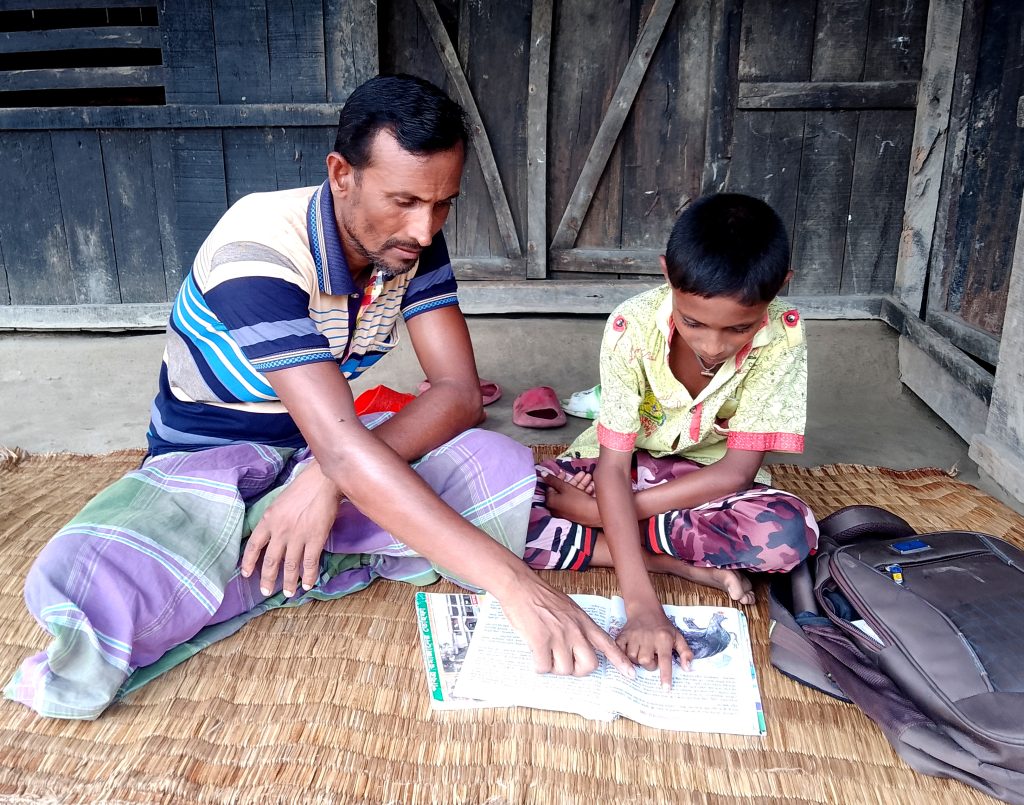Bangladeshi society allows children to work at an early age, despite the dire consequences. It is estimated that over 3 million boys and girls are working and of those, more than 1 million engage in dangerous labour. Most children are work without a contract and 61% are not enrolled in school.
Why do so many boys and girls work? Research finds that this is due to family poverty, the demand for cheap child labor, a shortage of schools and appropriate learning environments, and the high cost of education.
It is for these reasons that so many boys and girls are undertaking dangerous jobs in areas such as welding, manufacturing, garbage collection, transport, fish processing, domestic work, or hospitality. The conditions are extremely poor, pay is minimal, and children can be working 12 hours or more a day.
Naim, a child laborer
One example of a child worker is Naim, who is now 12 years old. His parents enrolled him in school at six. He was a regular student who achieved well, but after finishing the fourth grade he lost interest in his studies and joined his father on his fishing trips. He used to combine fishing in the river with working in the crab factory.
Although he was very young, Naim’s family did not prevent him from working because his income was considerable — he earned about 4,000 takas per month, which is equivalent to about 35 euros — and they needed the money because his grandmother was sick and the treatment for her illness was expensive.
Going back to school is possible if families are given an opportunity and the children are monitored. Naim joined one of our education programs in Bangladesh, which provides an opportunity for boys and girls who have abandoned their studies to return to school, undertaking a bridge course that allows them to re-enroll in the appropriate grade.
Leaving work for the classroom
Naim enrolled in 4th grade, but he was not a regular attendee because he wanted to continue earning money for his family. His teacher and the members of the local child protection committee monitored his attendance and met with his family to explain to them how important it was for Naim to continue his studies.
Now, with the support of his family, he is once again focused on learning. His father’s backing has been particularly valuable: “Despite the difficulties, I will not allow my son to continue working. I hope that Naim continues studying regularly and has more opportunities than I have in the future.

Naim says: “When I finish studying and pass the final exam, I want to get a good job. I will also try to help all the boys and girls in my area to stay in school. Dangerous work can do a lot of damage, that’s why I want other children who work here, like I did, to be able to get out.”
